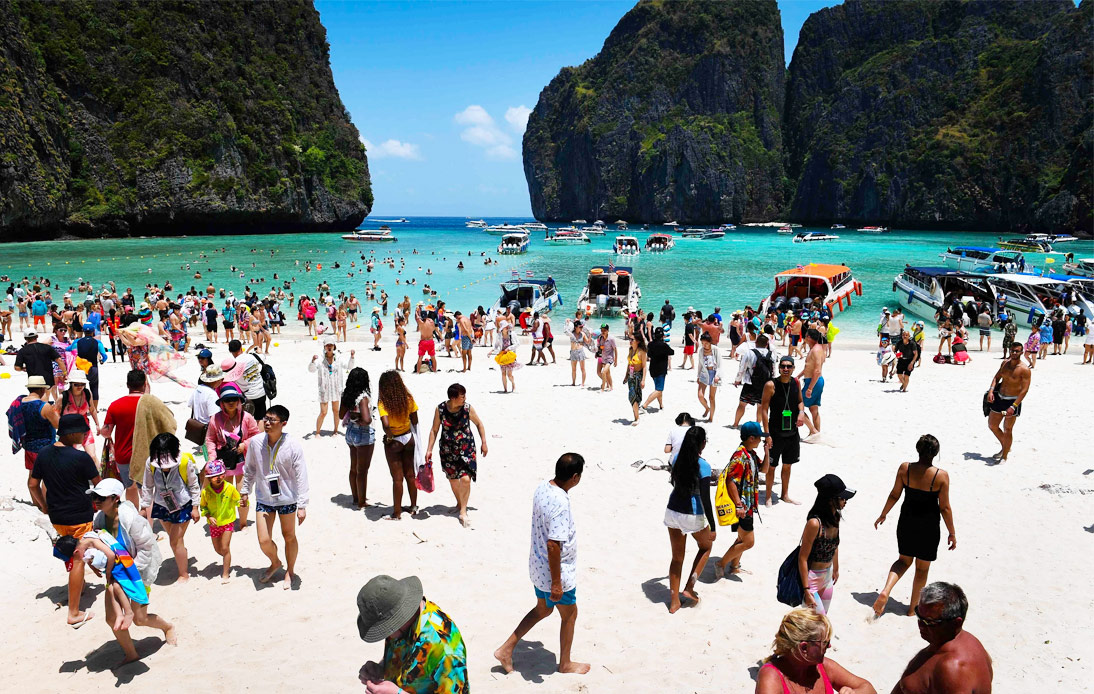
The Tourism Authority of Thailand (TAT) is proposing to the government an extension of visa-free stays for long-distance travellers, particularly those from the United States and Europe, to 90 days.
This proposal aims to increase the revenue from long-haul tourism to constitute 40% of Thailand’s total tourism income by 2024.
Siripakorn Cheawsamoot, TAT’s deputy governor for Europe, Africa, the Middle East, and the Americas, believes that extending visa durations will enhance the average length of visits and maximize spending per trip.
Currently, Thailand offers visas on arrival to citizens from over 60 countries, including the United States, the United Kingdom, Germany, France, and Scandinavian countries, typically allowing a 30-day stay before a visa extension is needed.
Siripakorn highlighted the effectiveness of the extended visa policy for Russian visitors, who have been allowed 90-day stays since last November.
Last year, over 100,000 international tourists, mainly from the United States, the United Kingdom, Sweden, and Germany, applied for a 60-day visa in Thailand.
“Extending stays should add at least a million room nights nationwide”, he stated.
Additionally, the TAT has requested the National Tourism Policy Committee to prolong other tourist-friendly policies until the end of the year.
These policies include suspending TM6 forms at Thai-Malaysia border checkpoints, a 30-day visa-free period for Kazakh travellers, and the 90-day visa-free period for Russian tourists.
Siripakorn mentioned that these proposals would require cabinet approval.
This year, the TAT is aiming for 10 million long-haul tourists, nearly 30% of the anticipated 35 million international visitors.
Before the pandemic in 2019, Thailand hosted 9 million long-distance tourists, accounting for 23% of its 40 million international visitors, with their spending contributing 33% to the total 1.9 trillion baht.
Siripakorn noted that long-haul flights to Thailand this winter have rebounded to 80% of pre-pandemic levels, which should increase visitor numbers.
The TAT is also encouraging international airlines to establish new routes to less congested airports in locations such as Surat Thani, U-tapao in Chon Buri, Krabi, and Chiang Mai.
Despite global tensions, like the Red Sea conflict and Europe’s sluggish economy, Siripakorn underscores the importance of overseas tourism for European travelers.
The lonlger stays in Thailand, made appealing by the country’s affordable cost of living, compensate for high airfare costs.
He expects some major markets to achieve record numbers this year, with up to 2 million Russian tourists and more than 1 million each from the United States, the United Kingdom, and Germany.




















